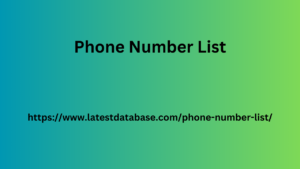Postpaid billing is a common payment method where consumers receive goods or services first and pay for them later. This system is widely used in various industries, including telecommunications, utilities, and subscription services. While it offers convenience and flexibility, understanding the intricacies of postpaid billing is essential to avoid unexpected charges and ensure a smooth financial experience.
The Basics of Postpaid Billing
Postpaid billing involves a cycle where consumers receive services, accumulate charges, and then pay a consolidated bill at a predetermined time. This cycle typically occurs monthly, but some providers may have different billing periods. The bill includes a detailed breakdown of charges, including usage fees, taxes, and any additional fees or discounts.
Common Charges in Postpaid Billing
Postpaid bills can include a variety of charges, depending on the specific service and provider. Some common charges may include:
- Base fees: A fixed monthly charge for the service, regardless of usage.
- Usage fees: Charges based on the amount of service consumed, such as minutes used, data consumed, or electricity units used.
- Taxes and surcharges: Government-imposed taxes and additional fees that may be added to the bill.
- Late fees: Penalties imposed for late Jordan Phone Number payments.
- Overage charges: Fees incurred when usage exceeds a predetermined limit.
- Equipment fees: Charges for renting or leasing equipment, such as smartphones or modems.
Understanding Your Postpaid Bill
To ensure accurate and timely payments, it’s important to understand the different components of your postpaid bill. Look for the following information:
- Billing period: The dates covered by the bill.
- Previous balance: Any unpaid balance from the previous billing cycle.
- Current charges: A detailed breakdown of all charges incurred during the current billing period.
- Total amount due: The total amount to be paid by the due date.
- Payment options: Available methods for making payments, such as online, by mail, or in person.
Payment Methods and Due Dates
Postpaid bills typically have a due date, which is the deadline for making payment. If the payment is not received by the due date, late fees may be applied. There are various payment methods available, including:
- Online payments: Convenient and secure method using a credit card or bank account.
- Mail-in payments: Sending a check or money order to the provider’s address.
- In-person payments: Paying at a physical location, such as a retail store or customer service center.
- Automatic payments: Setting up recurring payments from a bank account or credit card.
Dispute Resolution
If you have a dispute regarding Building a competent structure and semantics of the site your postpaid bill, it’s important to address it promptly. Contact your service provider’s customer service department to discuss the issue and seek resolution. Be prepared to provide supporting documentation, such as usage records or receipts.
Tips for Managing Postpaid Billing
- Review your bill regularly: Check your bill for any errors or discrepancies.
- Understand your usage: Monitor your usage to avoid unexpected charges.
- Set up automatic payments: Ensure timely payments and avoid late fees.
- Communicate with your provider: If you BW Lists have questions or concerns, don’t hesitate to contact your service provider.
- Consider prepaid options: If you’re concerned about overage charges or want more control over your spending, explore prepaid options.
By understanding the basics of postpaid billing and following these tips, you can effectively manage your finances and avoid unnecessary costs.

